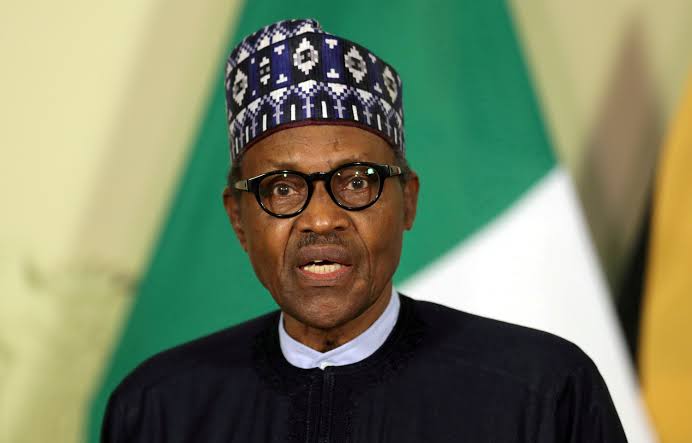By Martins Chiedozie Ugwu

The “us versus them” mentality, is a subversion of Democratic Evolution and the Greatest Impediment to any meaningful development.
In a society where its major conflicts and causes of underdevelopment is often linked to tribal sentiment and ethnic jingoism and are mostly deployed to settle economic and political scores, thereby breeding endemic corruption and irresponsible leadership, ethnic militias and more divisions, it will not only be irrational and absurd for anyone to think we should continue to elect our leaders based on ethnicity or zone. It will be senselessness and illogical and also counterproductive for anyone to engage in a campaign that fuels ethnic sentiment and questions our democratic stands.
The 1994 Rwanda Genocide claimed over one million lives and left the country in a disastrous situation within few days of the start of the conflicts, which ultimately bred many widows, orphans and the disabled.
In retrospect and in 1960, the Hutu-dominated party, Parmehutu, had gained political control of Rwanda, which it retained after the country achieved independence in 1962. Ethnic violence erupted in December, 1963, with attendant killings and the exodus of Tutsi refugees who tried unsuccessfully to invade Rwanda from neighboring countries in an attempt to come back to their homeland where a large group of people lost their lives. This catastrophic disaster retarded the economy of the country then
So far, the latest ideology in the country of ‘never again’ is a reality rather than a myth.
In Rwanda these days, it is rude-and can even be deemed criminally “divisionist”-to use the labels Hutu and Tutsi in public. “We are all Rwandans now” and it is the strictly enforced official mantra and the present state of Rwanda will shame anyone here beating the drum of ethnicity.
But what happens when a democratically elected government and some self acclaimed leaders continuously promote division or zoning, as in the case of Nigeria? The result is where we are today.
A comprehensive look into Rwanda and many other African States’ history will help demonstrate how ethnicity divides and unavoidable clashes occur overtime as a result of political and cultural manipulations carried out by politicians for their selfish goals. And the question every responsible person here should be asking is; ‘Is this practice of the so-called zoning formula benefiting or under-developing us?’ The answer will be quick to come when we take a brief look at the sorry state of countries in Africa, where you will be forced to throw stones at anyone preaching or campaigning for elected officers on the bases of ethnicity or zone. Except for those few unlearned players, who don’t know their left or right, I mean those whose stomach dictates their political ideology or allegiance will be quick to tell you that there is nothing wrong with zoning and still they can’t point to any developed country or state that emerged through zoning practice. Question then is: why are we encouraging it and to whose interest?
As we continue to slide while preaching zoning, today it is sad and regrettable that virtually every African conflict has some ethno-regional dimension to it. Even those conflicts that may appear to be free of ethnic concerns involve factions and alliances built around ethnic loyalties. Analysts have tended to express one or two views on the role of ethnicity in these conflicts. Some see ethnicity as a source of conflict; others see it as a tool used by political entrepreneurs to promote their ambitions. In reality, it is both.
Ethnicity or political tribalism especially when combined with territorial identity, is a reality that exists independent of political maneuvers. To argue that ethnic groups are unwitting tools of political manipulation is to underestimate a fundamental social reality. On the other hand, ethnicity is clearly a resource for political manipulation and entrepreneurship but who will convince these gullibles to look out for an individual’s capabilities rather than his or her zone and state of origin?
Sensing the dangers of ethnicity and tribalism, many African leaders, immediately after independence disavowed tribalism as divisive. For example, Kwame Nkrumah of Ghana outlawed parties organized on tribal or ethnic bases. Houphouet-Boigny of Côte d’Ivoire co-opted ethnic groups through shrewd distribution of ministerial posts, civil service jobs, social services, and development projects. Julius Nyerere, a scion of tribal chieftaincy, stamped out tribalism by fostering nationalistic pride in Tanganyika and later, Tanzania, borne out of the union with Zanzibar. Jommo Kenyatta of Kenya forged a delicate alliance of ethnic groups behind the dominance of his Kenyan African National Union party. In South Africa, apartheid recognized and stratified races and ethnicities to an unsustainable degree.
Post-apartheid South Africa, however, remains poised between a racially, ethnically, and tribally blind democratic system and a proud ethnic self-assertiveness, represented and exploited by Zulu nationalists, spearheaded by the emotive leadership of Chief Buthelezi, and the state of South Africa today will tell you more on the negative impact of political tribalism and why nobody should preach to you anything close to zoning.
The fact that the greatest challenge to our democracy is not the prevalence of ethnic diversity, but the use of identity politics to promote narrow tribal interests. In the absence of efforts to build genuine political manifestos that will enable us to compete on the basis of ideas instead, we have reverted to tribal identities or the so called “zoning” as foundations for political competition. The negative impact of such practices brought us to where we are today in Africa.
For us here in Nigeria, as the 2023 general election draws closer, this is the time to correct and rewrite our political history by resolving to choose our leaders at all levels based on an individual’s political antecedents and ideology, if not we will keep repeating the same mistake and will keep getting the same result of producing irresponsible leaders whose loyalties and allegiance go to their tribe or zone, instead of the state.
Martins Chiedozie Ugwu
Former International President- All African Students. Former Country Representative Students World Assembly. Co-founder Students For Change Initiatives, Secretary General of We The People Movement, Chancellor of Noble Youth organization of Africa and Vice President, Global Asset and Management Council (www.giaamcouncil.com) Africa & Middle East.
Johnmartinsworldonline@gmail.com

More Stories
ASUU STRIKE AND ITS IMPLICATIONS
AKWA IBOM 2023: NEED TO TOE SEN. BOB’S INTEGRITY PATH
Youths and Nigeria’s transformation